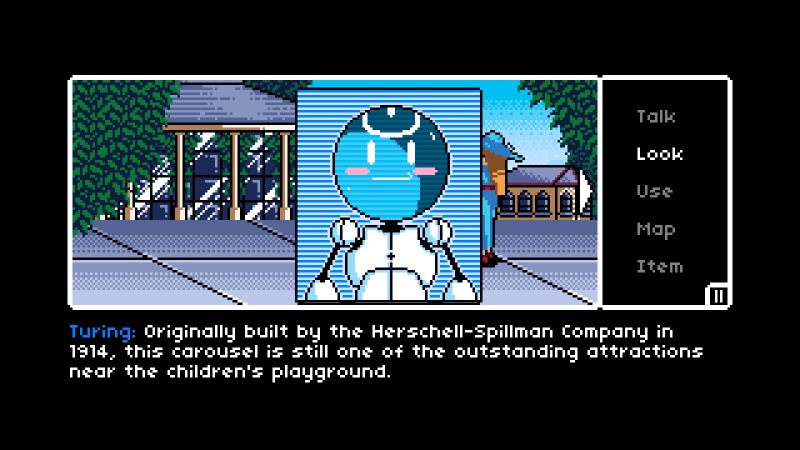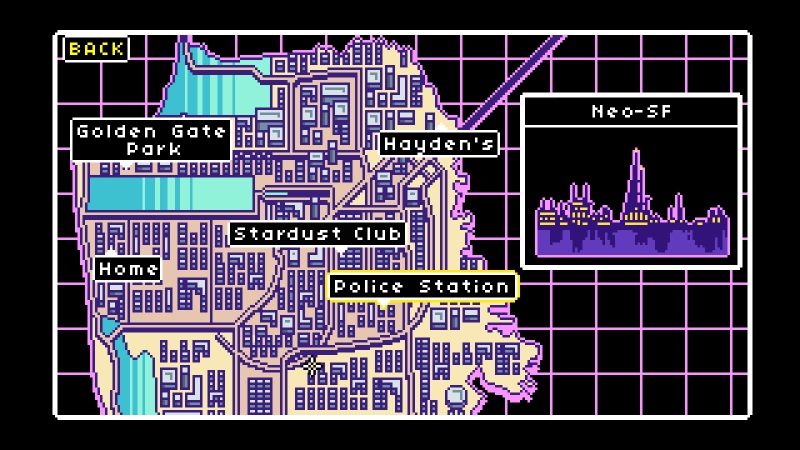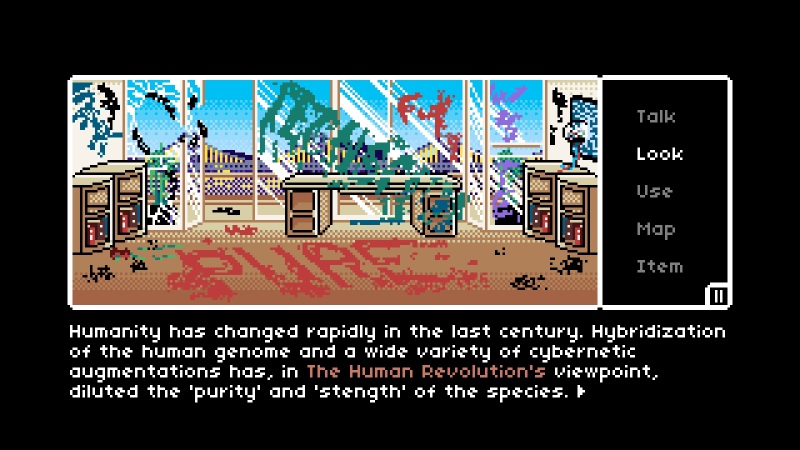From The Conversation to Tales of the City, San Francisco has been well-represented in film and literature. But as Matt Conn, producer of the upcoming adventure game Read Only Memories, told me recently over coffee at Haus in the Mission, there are hardly any games that let you actually explore San Francisco and experience its history and culture in a meaningful way. A few racing games have been set in SF, but in these, the city serves as nothing more than a backdrop for Bullitt-style car chases. With Read Only Memories (or ROM for short), Conn is interested in giving players a richer experience of San Francisco.
ROM, which was funded by a successful Kickstarter campaign, is a game in the classic point-and-click adventure mold, a genre with a focus on storytelling and puzzle solving. Set in the Neo-San Francisco of 2064, ROM casts the player as a journalist—you get to specify the character’s name and gender, with both standard and genderqueer pronoun options available—who is enlisted by a robot named Turing to help find Turing’s creator, an old friend of the player’s character who has disappeared under mysterious circumstances.

At Haus, I ask Conn what he sees as the role of San Francisco in Read Only Memories. Referring to a classic adventure game, Conn replies, “After playing Gabriel Knight, I was really impressed with how the creators made New Orleans its own character. That game was really good at incorporating real history.”
Read Only Memories incorporates some real San Francisco history, too. Examine the carousel building in Golden Gate Park, for instance, and Turing will rattle off some facts about it. But while you might learn a thing or two from the game, Read Only Memories doesn’t go out of its way to educate players about buildings and landmarks. The game is more concerned with capturing the spirit of San Francisco’s neighborhoods, and, most importantly, its people.
Conn’s primary goal in developing Read Only Memories was to make a game that featured a diverse assortment of queer characters in prominent roles, but wouldn’t be aimed exclusively at queer audiences. Instead, it’s a game that should feel approachable to anyone, particularly fans of sci-fi and of classic point-and-click adventure games. In fact, Conn hopes that some players who are resistant to the idea of engaging with queer characters might find their perspectives challenged by their time in Neo-San Francisco.




